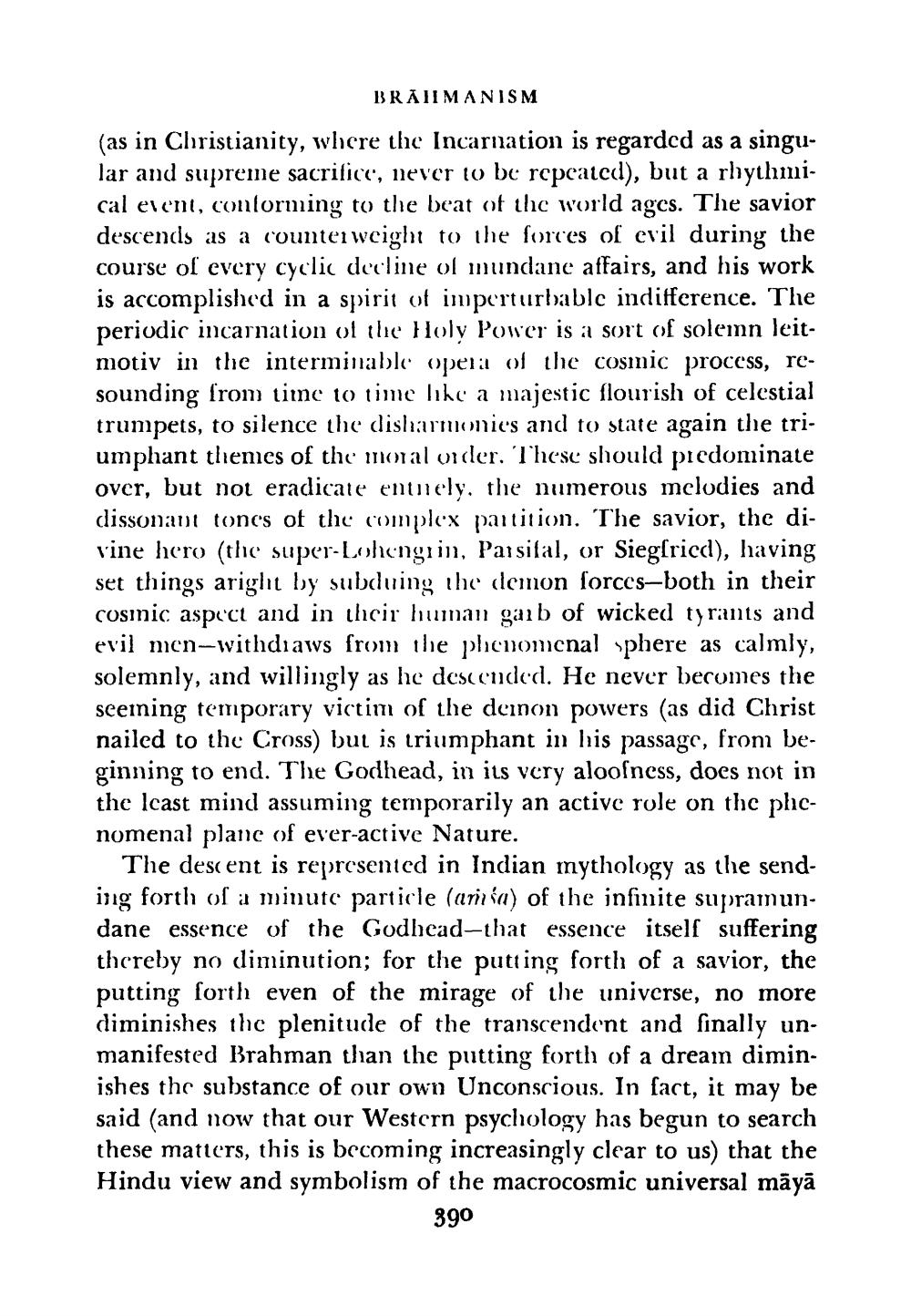________________
BRAIIMANISM
(as in Christianity, where the Incarnation is regarded as a singular and supreme sacrifice, never to be repeated), but a rhythmical event, contorming to the beat of the world ages. The savior descends as a counter weight to the forces of evil during the course of every cyclic decline ol mundane affairs, and his work is accomplished in a spirit of imperturbable indifference. The periodic incarnation of the Holy Power is it sort of solemn leitmotiv in the interminable opera of the cosmic process, resounding from time to time like a majestic flourish of celestial trumpets, to silence the disharmonies and to state again the triumphant themes of the moral uirler. These should predominate
cr. but not eradicate entrely, the numerous melodies and dissonant tones of the complex partition. The savior, the divine hero the super-Lohengrin, Parsifal, or Siegfried), having set things aright by subduing the demon forces-both in their cosmic aspect and in their human garb of wicked tyrants and evil men-withdiaws from the phenomenal sphere as calmly, solemnly, and willingly as he descended. He never becomes the seeining temporary victim of the deinon powers (as did Christ nailed to the Cross) but is triumphant in his passage, from beginning to end. The Godhead, in its very aloofness, does not in the lcast mind assuming temporarily an active role on the phicnomenal plane of ever-active Nature.
The descent is represented in Indian mythology as the sending forth of a minute particle (aria) of the infinite supramundane essence of the Godhead-that essence itself suffering thereby no diminution; for the putting forth of a savior, the putting forth even of the mirage of the universe, no more diminishes thc plenitude of the transcendent and finally unmanifested Brahman than the putting forth of a dream diminishes the substance of our own Unconscious. In fact, it may be said (and now that our Western psychology has begun to search these matters, this is becoming increasingly clear to us) that the Hindu view and symbolism of the macrocosmic universal māyā
390




